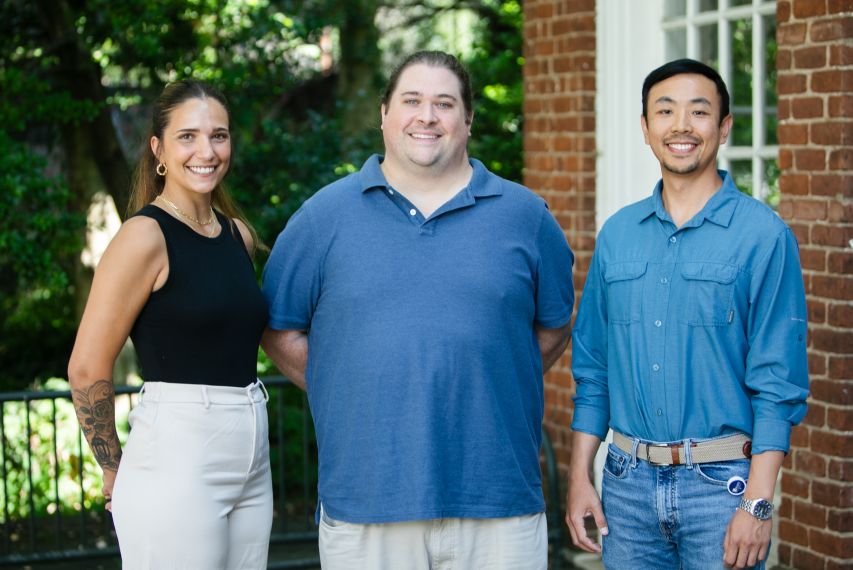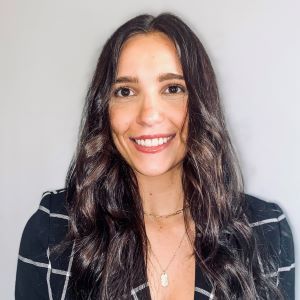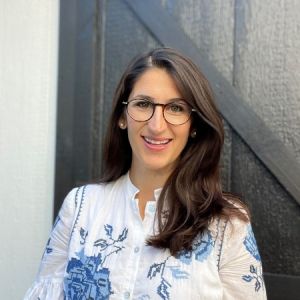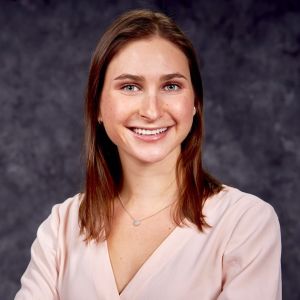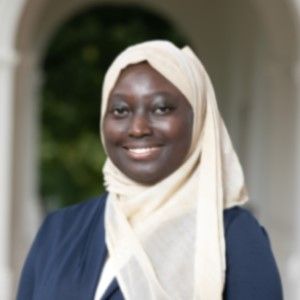The primary goal of the Virginia Alzheimer's Disease Center (VADC) Scholars Program is to increase the number of high-quality investigators participating in transformative interdisciplinary research in Alzheimer's disease and related dementias (ADRD).
Optimization of emerging methodologies in high-impact ADRD research requires gifted scientists capable of sharing knowledge and methods across disciplines. VADC Scholars are a diverse cohort and include pre-doctoral students and post-doctoral scholars from schools and programs across UVA. Each VADC Scholar has a primary VADC mentor and strategically partners with VADC faculty mentors to support their ADRD research education. An advanced, cross-cutting course curriculum has been developed with a focus on ADRD clinical approaches, research approaches and methods, biology and pathology of ADRD, data science, and ethical and responsible conduct of research. Research education and mentorship activities are the main focus of the 1-year VADC Scholar Program.
We are currently accepting applications for the VADC Scholar Program 2024-2025 cohort!
The deadline for applications has been extended.
The VADC Scholar Program seeks post-doctoral scholars for the 2024-2025 cohort, with scholar activities occurring from August 2024 to June 2025. The overall goal of the VADC Scholar Program is to increase the number of high-quality investigators participating in transformative interdisciplinary research in Alzheimer’s Disease (AD) and AD-related dementias (ADRD). Research education and mentorship activities are the main focus of the VADC Scholar Program, and the Scholar may receive VADC funding for research-related activities. Content and training opportunities focus on the VADC faculty’s expertise in clinical care, basic science, biomarkers, data science, mentorship, and research participant recruitment and engagement. VADC Scholars spend about 2-3 hours/week attending in-person microlabs, participating in mentorship and discussion sessions with VADC faculty, or engaging in other learning opportunities. Curriculum content includes a range of topics ranging from neuronal circuits affected by AD cell biology of AD to racial and ethnic disparities in ADRD risk, diagnosis, and treatment.
Please see the application link below and contact Meghan Mattos, PhD, RN, at [email protected], for more information about this opportunity.
We are very excited to welcome three VADC scholars in 2023!
Rachel Edelstein is a third-year doctoral student in the Department of Quantitative Psychology. She earned her Bachelors of Arts in Psychology at Arizona State University and spent her senior year in the Memory and Cognition Lab. Rachel is currently working under Dr. John Van Horn within the Brain and Data Science Lab where she focuses on the females with brain trauma, age-related disease, contrasting patterns of neuroanatomy, computational brain mapping analytics, and the role of computational approaches to dealing with large-scale neuroscience data. Her research interests include data science of neuroimaging in concert with biomedical and socio-psychological factors for the identification of patterns and biomarkers that can warrant early intervention for neurodegenerative diseases in females who have sustained multiple head traumas. She additionally is interested in the association between head-trauma in young domestic violence victims and risk factors associated with Alzheimer's Disease and Chronic Traumatic Encephalopathy.
Ryan Thompson, Ph.D., is a first-year neuropsychology postdoctoral fellow in the Department of Neurology at UVA Health. He earned his doctorate in clinical psychology from Palo Alto University, which included a major area of study in clinical neuropsychology. He completed his doctoral internship in the Adult Neuropsychology Program at Dartmouth Health/Geisel School of Medicine, and as a doctoral student, he completed neuropsychological practica at the Stanford University School of Medicine, UCSF Memory and Aging Center, and VA Palo Alto. His research interests are focused on non-pharmacological interventions for patients with MCI/AD/ADRD and their caregivers and 2) characterizing longitudinal trends of cognitive performance and related health outcomes across the lifespan using mixed methodologies to improve early detection of cognitive decline. Under the mentorship of Carol Manning, PhD, ABPP-CN, he will be conducting neuropsychological evaluations in the UVA Memory and Aging Care Clinic, administering clinical dementia rating scales for clinical trials of disease-modifying treatments for AD, and contributing to ongoing VADC research projects (e.g., TeleFAMILIES).
Hongyin Wang, Ph.D., is a postdoctoral research scientist in the Department of Molecular Physiology and Biological Physics at the UVA School of Medicine. He earned his bachelor’s degree from the Xiangya School of Medicine of Central South University in China, and obtained his PhD from Southeast University in China. He is currently a postdoctoral scientist in Dr. Ilya Levental’s laboratory working in the fields of membrane biology and biophysics. His current research is focused on (1) the coupling of lipid and protein phase separation during T-cell activation, (2) the regulation of plasma membrane asymmetry on membrane biophysical properties, (3) the homeostasis of plasma membrane in hibernators. His interests include the effects of membrane homeostasis on neuronal function during the development of neurodegenerative diseases, such as Alzheimer's disease.
Virginia Gallager, Ph.D., is a licensed clinical psychologist and second-year neuropsychology fellow in the Department of Neurology at UVA Health. She earned her undergraduate degree from the University of Virginia and her doctorate from Northwestern University, Feinberg School of Medicine. Her current research interests include examining factors associated with sleep disturbances among older adults with cognitive decline and their respective caregivers, with the ultimate aim of developing tailored interventions in this realm. Her previous research includes examining the use of eye movement assessments among athletes and Veterans exposed to head trauma, as well as investigating factors associated with poor post-concussion outcomes, including sleep disturbances. In her current clinical work, she conducts clinical neuropsychological assessments that utilize cognitive and psychological measures primarily to: a) assist with the diagnosis of brain disorders (i.e. dementia, Mild Cognitive Impairments, movement disorders, ADHD, etc.), b) characterize cognitive strengths and weaknesses, c) monitor progression/treatment response over time, and d) evaluate candidacy for neurosurgical procedures such as Deep Brain Stimulation.
Sophie Bell is a first-year doctoral student in the Ph.D. program in Clinical Psychology at the University of Virginia.
She earned her bachelor's degree at Duke University and afterwards spent three years at the Memory Disorders Center at Columbia University Irving Medical Center where she researched the development of sensitive neuropsychological assessments for early-stage Alzheimer's disease. Currently, under the mentorship of Dr. Eric Turkheimer, Sophie's research focuses on identifying biological and cognitive markers of aging in midlife through a lifespan longitudinal twin study. She is interested in using midlife risk factors to inform early intervention for Alzheimer's disease and other dementias.
Aminata Coulibaly, Ph.D., is a postdoctoral fellow in the Department of Neurology. Dr. Coulibaly is interested in understanding how cells of the immune system contribute to changes in the dementia and Alzheimer's disease brain.
Shannon E. Reilly, Ph.D., earned her doctorate degree in clinical psychology from the University of Virginia after
completing her clinical internship at West Virginia University in the Department of Behavioral Medicine and Psychiatry. She is currently a second-year postdoctoral fellow in Clinical Neuropsychology at UVA Health in the Department of Neurology, as well as a Virginia Alzheimer's Disease Center postdoctoral scholar. Clinically, she works at UVA Health's Memory and Aging Care Clinic, primarily conducting neuropsychological evaluations and clinical interventions with individuals with mild cognitive impairment and dementia of various etiologies (e.g., neurodegenerative disorders, cardiovascular conditions, multiple sclerosis, brain tumors, psychiatric conditions). Under the mentorship of Dr. Carol Manning, Dr. Reilly's research focuses on dementia caregiver science and risk and protective factors for neurodegenerative conditions. She has also published research related to mental health practitioners' responses to the COVID-19 pandemic.
Our Approach to Inclusion and Access
Across all VADC training activities, diversity is carefully considered as an all-inclusive concept. We include differences among race, gender, age, national origin, ethnicity, disability, religion, culture, socio-economic status, sexual orientation, and any other attributes that truly represent an individual or group. We fully understand that diversity is not only the obvious differences but the less apparent as well. Individual lifestyles, work/life balance, interpersonal styles, life experiences, talents, and creative passions are all factors that contribute to a person's culture or identity. Moreover, biomedical and clinical research are not the only domains from which interest in Alzheimer's disease research emanates. With the increasing focus on data-drive analysis, domains such as mathematics, computer science, and engineering provide much-needed quantitative diversity to the traditionally clinically-based field of Alzheimer's disease research.



